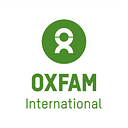Stories of courage and resilience from Grassroots Women Human Rights Defenders and Feminists in the face of the COVID-19 Pandemic
This is a production of the Coalition for Grassroots Human Rights defenders Kenya (CGHRDs Kenya). This publication was supported and funded by the Rosa Luxemburg Foundation, Dar-es-Salaam, Tanzania.
Strengthening grassroots networks to combat the COVID-19 Pandemic; Jacinta Agunja of Coalition for Grassroots for Human Rights Defenders Kenya.
My name is Jacinta Agunja.
I am the Finance Officer, Coalition for Grassroots for Human Rights Defenders Kenya. We are a social movement of grassroots activists, feminists and community organizers. Mostly we defend human rights, women, children and girls rights. We specified our focus because in our community we found out that women and girls are more vulnerable to violence, rape and defilement. So we were forced to bring them on board at least to prevent that challenge from affecting them.
COVID-19 made life tough. Money reduced because everybody was affected. No one had money at that time. The biggest challenge during COVID-19 was the burden from the community. They see us like their ‘saviours’ while we are also struggling for donations to distribute food to them. For example, we used to distribute food and we are not funded, but through the support of friends and well wishers, both local and globally, we were able to support our communities as Coalition for Grassroots Human Rights Defenders Kenya.
The challenges have been immense. Every group member who had a friend used to call and ask “Hello can you save me?” then they could give things like sanitary pads. We then collected them together before we could distribute to the community. Fundraising was the biggest challenge, because we had no formal capacity on how to do it. It is not easy to convince people to give when they too are struggling within a pandemic.
The other thing we noticed during COVID-19 was a rise in domestic violence. On a daily basis we used to get these cases. We could hear someone has beaten or hurt their partner. Even parents neglected their children. Women who used to go to places like Eastleigh to do manual labour, also stopped when the government imposed lockdown. Most people were laid off so both parents in most families became jobless. That meant that no one had food to feed their children. They were just there, helplessly looking at each other. There is a sad case we came across during our project tour. We found a mother had locked herself up with her children waiting for them to die because she totally had nothing. The children were malnourished. She did not want her children to get out begging for food. The same day we found another woman who broke into someone’s house only to steal food nothing else. She stole a bag of maize flour.
Amidst the misery we had success stories too. Looking back now, we fed over five thousand families within Mathare and the surrounding areas. The other success we had was we gave people hand washing containers which we made ourselves. We bought containers and fixed taps on them. We then connected them before distribution to various households. We gave almost two thousand containers. Donors also supported us with more containers which we added to ours and gave out. Another success is we formed a network of allies in that when we called our friends, they also reached out to their friends to fundraise and that is how our network grew. We are still reaching out and fundraising to help families that still do not have food. The little money we got we decided to convert to business after we realized it can save us. So we bought seats that we hire out to others. We also sell t-shirts; both these items generate us some income that continues to sustain our charity efforts in the community. Our consistent supporter or donor had been Jennifer Wynne and her team Changing Lences, Changing Lives.
The government should stand with its citizenry especially in times of challenges such as during this pandemic. We heard and saw media reports that there was so much money and material support coming into the informal settlements such as Mathare but here we saw nothing of it. For us, only human rights defenders were helping people with food donations and other basic needs. It is imperative for the government to create jobs and alternative ways of income generation for especially the people in the informal sector because we still have COVID-19. Most people in the informal settlements seek jobs from the middle and high class areas but like now they are not allowed in because of the restrictions on social distancing. These are the areas where most people get to do domestic chores to support their families. The government should think of how people staying in informal settlements can get jobs that will help them feed their families.
